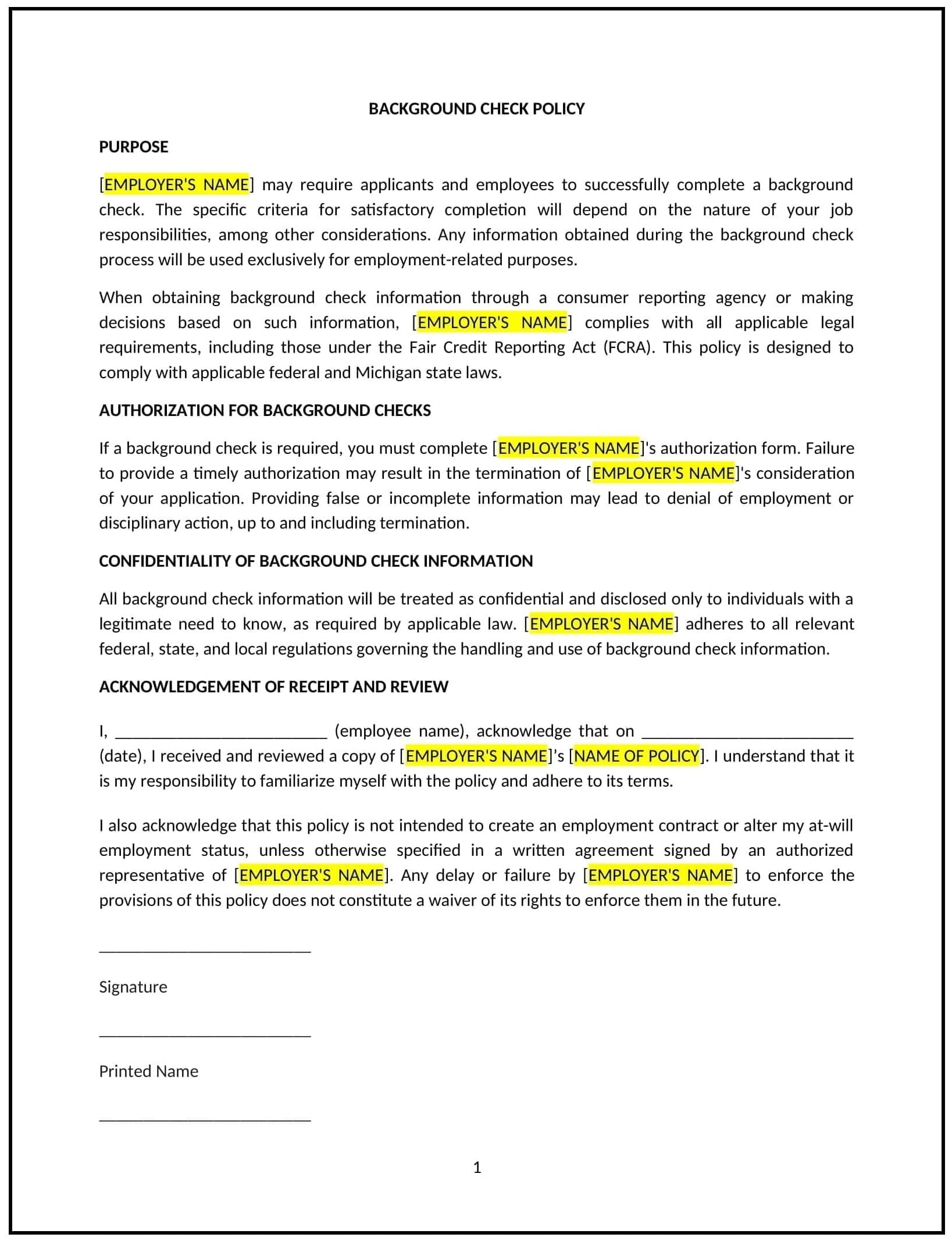Got contracts to review? While you're here for policies, let Cobrief make contract review effortless—start your free review now.

Customize this template for free
Background check policy (Michigan)
A background check policy provides Michigan businesses with guidelines for conducting background checks on potential employees or current employees, ensuring that hiring and employment practices are safe, legal, and fair. This policy outlines the procedures for conducting checks, the types of information collected, and how businesses will use that information in hiring decisions.
By adopting this policy, businesses can reduce risks, make informed hiring decisions, and ensure compliance with Michigan state and federal laws.
How to use this background check policy (Michigan)
- Define scope: Clearly outline the types of background checks to be conducted, such as criminal background checks, employment history verification, credit reports, and drug screenings.
- Set criteria for checks: Specify the circumstances under which background checks will be conducted, such as during the hiring process, for promotions, or when an employee’s role changes.
- Address legal compliance: Ensure the policy aligns with Michigan state laws and federal regulations, including the Fair Credit Reporting Act (FCRA) and other applicable laws that govern the use of background check information.
- Obtain consent: Ensure that all candidates and employees understand the background check process and provide written consent before any checks are conducted.
- Specify information collected: Clarify the types of information that may be collected during a background check, including criminal history, credit information, and employment records.
- Provide guidelines for using the information: Outline how the information gathered during background checks will be used in decision-making, ensuring it is relevant to the position being applied for.
- Include dispute resolution procedures: Establish a process for employees to dispute findings on their background check, including the steps for review and correction if necessary.
Benefits of using this background check policy (Michigan)
This policy provides several key benefits for Michigan businesses:
- Promotes safety: Helps businesses ensure that employees do not have criminal histories or other red flags that could endanger the workplace or reputation.
- Reduces hiring risks: Minimizes the risk of hiring candidates who may not be suitable or trustworthy for certain roles, especially sensitive positions.
- Enhances compliance: Ensures businesses comply with Michigan and federal laws regarding background checks and the use of personal information.
- Builds trust: Shows that the business is committed to maintaining a safe and responsible workplace.
- Increases transparency: Establishes clear and consistent guidelines for conducting background checks, providing fairness for all candidates and employees.
Tips for using this background check policy (Michigan)
- Communicate the policy: Make sure all potential candidates and employees are aware of the background check policy, especially during the hiring process.
- Obtain written consent: Ensure that all candidates sign consent forms before any background checks are initiated, in compliance with state and federal laws.
- Be transparent about results: Provide candidates and employees with an opportunity to explain or dispute findings on their background checks.
- Use information responsibly: Make decisions based on the relevance of the information to the specific role and adhere to legal limitations on using background check results in hiring decisions.
- Review regularly: Update the policy to reflect changes in Michigan state laws, federal regulations, or business practices.